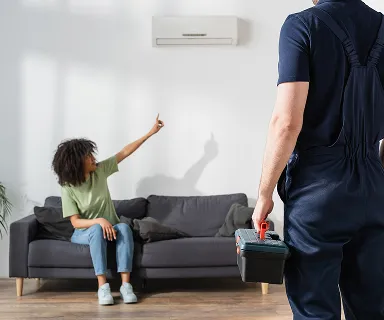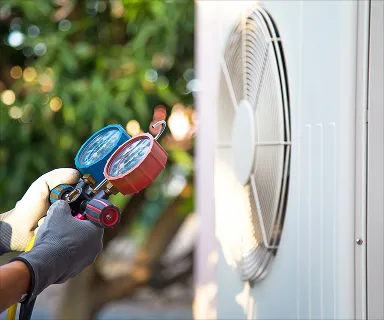
Living in Florida means relying on your air conditioner nearly year-round. However, the state’s high humidity levels create additional challenges for AC systems. Unlike in drier climates, where an air conditioner’s primary job is to cool, Florida AC units must also remove excess moisture from the air to maintain indoor comfort. Without proper maintenance, this added workload can lead to reduced efficiency, higher energy costs, and frequent breakdowns.
This guide covers how humidity affects AC performance, key maintenance tasks homeowners should follow, energy-saving strategies, and signs it’s time for professional service. Read on to learn more!

Image caption goes here
Air conditioning systems don’t just cool the air—they also dehumidify it. In Florida, where humidity levels often exceed 70%, AC units work much harder to maintain a comfortable indoor environment. Excess moisture in the air can lead to several problems, including:
Without proper maintenance, Florida’s humidity can overwhelm an AC system, causing poor cooling performance and higher energy bills. That’s why routine care is essential for long-term efficiency.
Proper maintenance keeps an AC unit functioning at its best, even in extreme humidity. Homeowners should follow these key maintenance steps to ensure their system operates efficiently:
A dirty air filter restricts airflow, making it harder for the AC to cool and dehumidify the home. In Florida, where AC units run more frequently, filters can clog quickly with dust, pollen, and debris.
AC systems rely on two coils to transfer heat: the evaporator coil (inside the air handler) and the condenser coil (outside). In Florida’s humid climate, these coils accumulate dust, debris, and even mold, which reduces efficiency and cooling capacity.
Keeping these coils clean ensures efficient cooling and proper dehumidification.
As the AC removes humidity from the air, the moisture drains through a condensate line. This drain line can clog due to algae and mold growth, leading to water backups, system shutdowns, or even water damage.
Refrigerant is essential for cooling, but low levels can cause the AC to run constantly without properly cooling the home. Leaks in the system reduce efficiency and can lead to compressor failure if left unchecked.
The outdoor condenser unit must have proper airflow to expel heat efficiently. In Florida, hurricane debris, plant overgrowth, and yard waste can block the unit and reduce cooling performance.
A well-maintained outdoor unit allows the AC to function at peak efficiency even on Florida’s hottest days.
While regular homeowner maintenance is important, a professional AC tune-up is essential at least once a year. A trained technician will:
In Florida, spring and fall are ideal times for maintenance—before the peak summer heat and after hurricane season.
Running the AC in a humid climate can be expensive, but a few adjustments can lower energy costs while keeping your home comfortable.
Following these strategies can significantly lower your electric bill while maintaining comfort.
Even with proper care, AC units show signs of trouble before a breakdown. Watch for these warning signs that indicate your system needs professional attention:
Ignoring these signs can lead to more expensive repairs or system failure. If you notice any of these issues, a professional inspection is the best way to diagnose and fix the problem before it worsens.
Florida’s humid climate puts extra strain on air conditioning systems, making regular maintenance a necessity. By following these essential maintenance steps—changing filters, keeping coils clean, clearing the drain line, and scheduling professional tune-ups—you can extend your AC’s lifespan, reduce energy costs, and ensure reliable cooling year-round.
If your AC is struggling to keep up with Florida’s humidity or showing signs of trouble, don’t wait for a breakdown. A professional maintenance visit can prevent costly repairs and keep your home comfortable all season long.

A running AC that fails to cool isn’t just frustrating—it’s a sign that something is...

A running AC that fails to cool isn’t just frustrating—it’s a sign that something is...